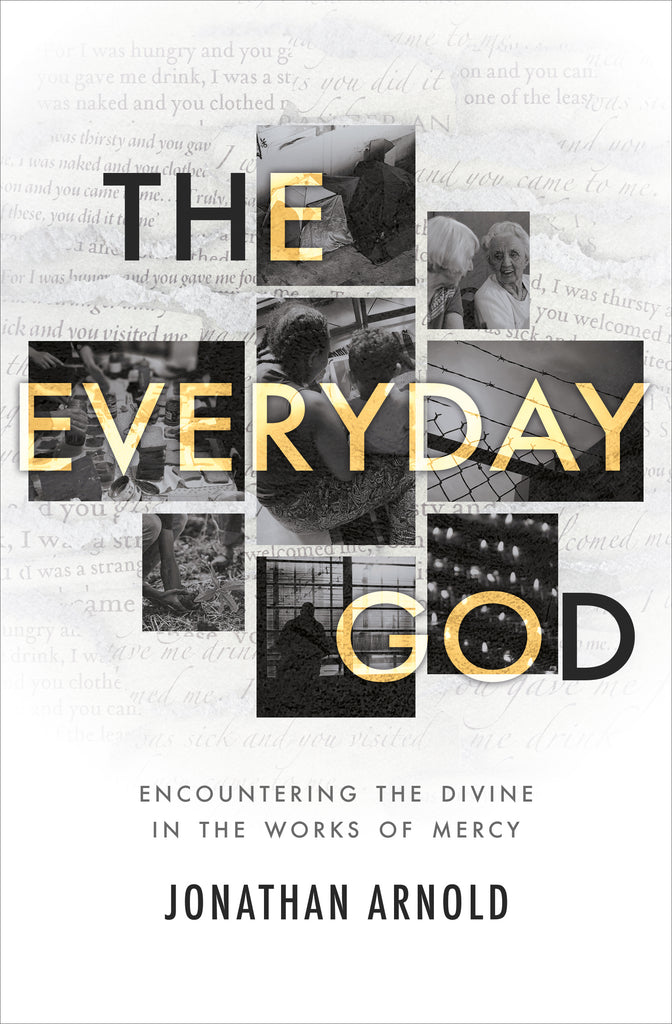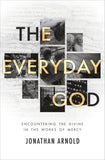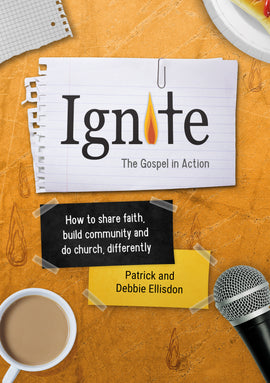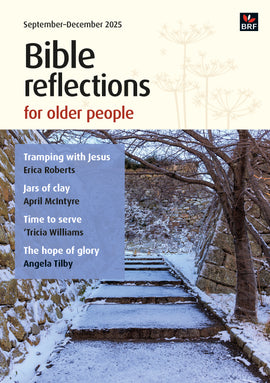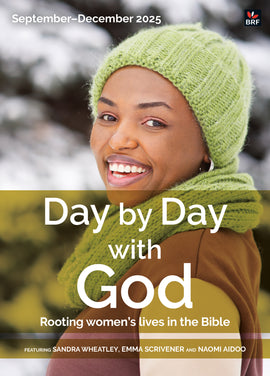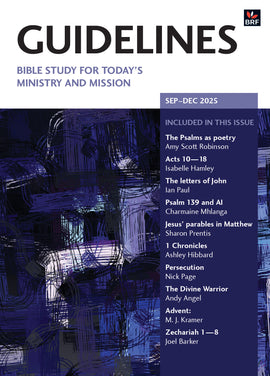The Everyday God: Encountering the Divine in the works of mercy
Compelling stories of loving our neighbour today
‘The everyday God is a God who is for everyone…who appears in everyday events and ordinary people. He calls us to move out of our comfort zones and into his liminal space on the margins of our society, to see the face of Christ in a stranger…’
Jonathan Arnold, a seasoned community engagement expert, delves deep into the heart of the biblical mandate to love one’s neighbour. Through a tapestry of real-life stories, he unveils the power of practical faith, illustrating how it can ignite transformation among the homeless, refugees, the poor and vulnerable, imprisoned and marginalised, as well as those living with dementia, disability and disease.
In these pages, you’ll witness how acts of social and environmental justice, intertwined with mercy, have the potential to reshape lives, offering a vivid portrait of the profound impact of embracing the everyday God. As he reflects upon Jesus’s teaching in Matthew 25:34–40, Arnold challenges us to discover God’s presence in the most unexpected places and join in with where he is acting, whether inside or outside our churches.
| Title | The Everyday God: Encountering the Divine in the works of mercy |
| Author | Jonathan Arnold |
| Description | ‘The everyday God is a God who is for everyone…who appears in everyday events and ordinary people. He calls us to move out of our comfort zones and into his liminal space on the margins of our society, to see the face of Christ in a stranger…’ |
| Details |
|
‘The everyday God is a God who is for everyone…who appears in everyday events and ordinary people. He calls us to move out of our comfort zones and into his liminal space on the margins of our society, to see the face of Christ in a stranger…’
Jonathan Arnold, a seasoned community engagement expert, delves deep into the heart of the biblical mandate to love one’s neighbour. Through a tapestry of real-life stories, he unveils the power of practical faith, illustrating how it can ignite transformation among the homeless, refugees, the poor and vulnerable, imprisoned and marginalised, as well as those living with dementia, disability and disease.
In these pages, you’ll witness how acts of social and environmental justice, intertwined with mercy, have the potential to reshape lives, offering a vivid portrait of the profound impact of embracing the everyday God. As he reflects upon Jesus’s teaching in Matthew 25:34–40, Arnold challenges us to discover God’s presence in the most unexpected places and join in with where he is acting, whether inside or outside our churches.
The Revd Dr Jonathan Arnold is Executive Director of the Social Justice Network in the Diocese of Canterbury, a charity that helps people at times of crisis, including migration, debt, hunger, homelessness, modern slavery and exploitation, the rehabilitation of ex-offenders and rural justice. He is an Honorary Research Fellow at the University of Kent, an Associate of Sidney De Hahn Centre for Arts and Health, Christ Church Canterbury University. Jonathan was formerly Dean of Divinity and Fellow of Magdalen College, Oxford, where he was tutor in ecclesiastical history and chair of examiners for the theology faculty. Other books include Music and Faith: Conversations in a Post-Secular Age (2019); Sacred Music in Secular Society (2014); The Great Humanists (2011) and Dean John Colet of St. Paul's (2007).
Church Times 18.10.24. Review by Jonathan Evens
Sometimes, books, like buses, come in pairs. The Everyday God could be a complementary pairing with Elizabeth Oldfield’s recently published Fully Alive (Books, 17 May, Podcast, 23 May). Oldfield’s book offers contemporary reflections on the seven deadly sins; and these then lead into reflections on the virtues that are the polar opposites of those sins. The kind of virtuous living that Oldfield seeks is characterised by the seven works of corporal mercy, which are the main focus of The Everyday God.
In this book, Jonathan Arnold brings his varied background in music, theology, and social justice into play through frameworks deriving from each of these three to explore the seven works of corporal mercy and the concepts of justice and mercy more generally. In each chapter, a different musical approach is used to introduce the theme, stories — drawn from a lecture series organised by Canterbury Cathedral and the Social Justice Network that Arnold leads — give apposite examples of the seven works of mercy in practice, while the theological concepts of “being with” (Samuel Wells) and “being interrupted” (Al Barrett and Ruth Harley) inform much of the practice described.
Arnold weaves these strands and themes together in compelling ways which are ultimately based in the Wellsian insight that our fundamental issue is isolation rather than limitation, and the reversal found in the story of St Martin and the Beggar, in which an act of mercy leads to a deeper vison of Christ for the one acting mercifully. This latter insight leads to the polyphonic understanding that, as Gerard Manley Hopkins wrote, 'Christ plays in ten thousand places, Lovely in limbs, and lovely in eyes not his. . .' The everyday God is found in those with whom we are with as the seven works of corporal mercy are practised.
It is possible that specialists in music, theology, or social justice might think that their particular strand was insufficiently explored through Arnold’s approach; but for the generalist, like myself, there is more than enough of interest and insight to keep one engaged as his explorations proceed.
At one point, he proposes an addition to or expansion of the concepts of 'being with' and 'being interrupted', in terms of 'being disrupted'. This comes from the story of Zacchaeus, but is applied to the one who triggers change through an act of mercy. Within that story, however, it is Zacchaeus, as recipient, who experiences disruption, meaning that this argument for disruption doesn’t work incarnationally as clearly as is the case for 'being with' and 'being interrupted'.
These are quibbles, however, in regard to a book that expands our understanding of the interconnections between music, theology and social justice, whilst actively inspiring incarnational mission.
Review by Jonathan Evens, team rector of Wickford and Runwell in the diocese of Chelmsford.
Transforming Ministry Winter 2024. Review by Laura Hillman
This book is a treasure chest of ideas and inspiration based on the experiences of the author – director of the Social Justice Network for the Diocese of Canterbury. He is also a musician who takes Augustine’s words ‘God is music’ as the thread connecting the rich variety of themes and real-life stories to the gospel narrative. Chapters are based on the traditional seven works of mercy: feeding the hungry, giving drink to the thirsty, housing the homeless, welcoming strangers, visiting the sick and the imprisoned; burying the dead. There is an additional chapter on caring for creation. All include material for individual reflection as well as group discussion with suggestions for further reading and resources. There are first-hand accounts of changed lives from prisoners, asylum seekers and others on the margins of society. The honesty of those whose lives have been transformed is an inspiration and a challenge. This is a book to dip into: it will not fail to interest both on a personal level as an aid to meditation and as a catalyst for change in the community.
Reviewed by Laura Hillman
Review by Donato Tallo
Jonathan Arnold has produced a thought provoking, practical and meditational book on the Everyday God who is alive and active, quite often in the most unexpected of places, and always both inside and outside of church buildings. The book reminds the reader that everyone is created in the image of God and that caring for all living beings and the environment as a whole is something that must be central to the life of a Christian.
This is a book that can be read by an individual at a pace to suit one's own needs or indeed would be a brilliant book for a church home group or equivalent gathering. Each chapter presents the reader with challenges to think about, includes thoughts, reflections and teachings from a wide range of individuals and links in scripture to the particular work of mercy being explored. The book is accessible and the fact each chapter finishes with a reflection, prayer and spiritual exercise allows the reader to use it in a manner to aid their spiritual life and development both in terms of prayer and considering practical actions that could be taken forward.
The work Jonathan is engaged in the Diocese of Canterbury is brought to life in an accessible and interesting format though the pages of this book and provides the reader with a significant insight into how the work Jonathan and his colleagues are engaged which makes a significant difference to the lives of so many people each and every day.
We live in a challenging world where so often it is easy to over look those in need, this book reminds the reader that we should not consider helping those in need as an option but consider it as a duty.
Jonathan highlights to the reader that at different times in life different people can be vulnerable, that all of us can be scared or troubled in someway and that the Bible reminds us that loving our neighbour is something we should all do despite its challenges. God is there for everyone and through the works of mercy (feed the hungry, give drink to the thirsty, clothe the naked, give shelter to travellers, visit the sick, visit the imprisoned, and bury the dead) we can all see God in the face of others through our spiritual and practical actions linked to the works of mercy.
This book has inspired me to find out more about Jonathans work and to reflect more on how I can find God in all things and in all people as well as considering what more I can do each and everyday with regard to the works of mercy.
Reviewed by Donato Tallo

